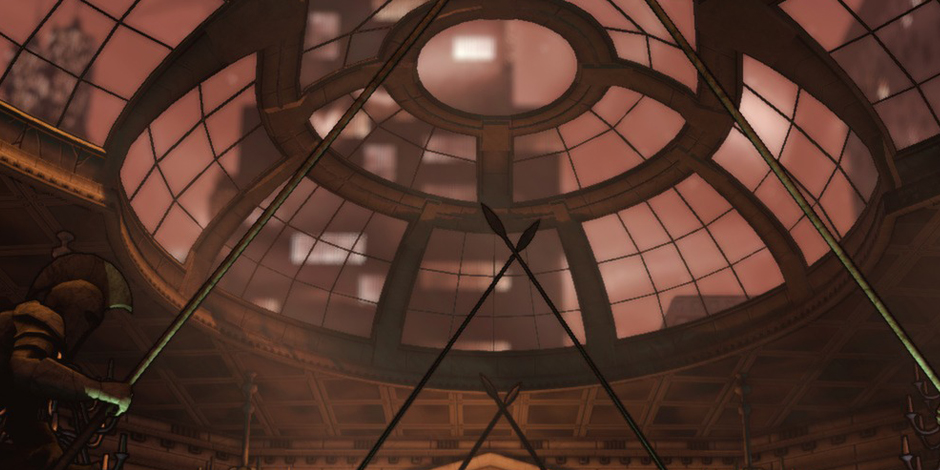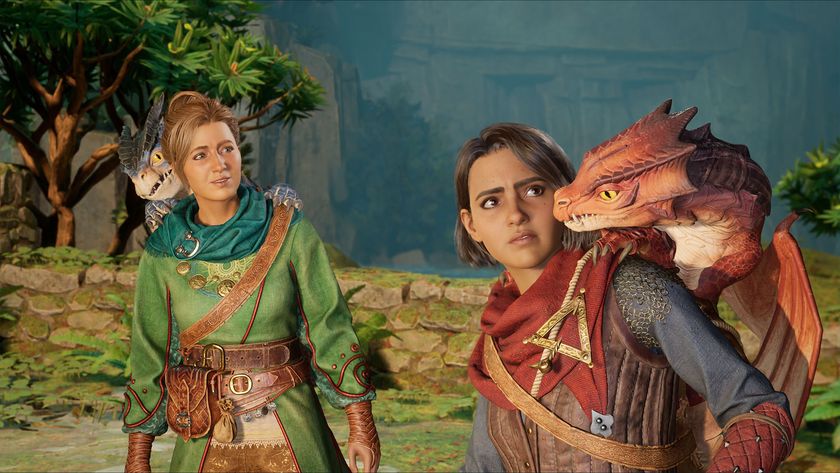GamesRadar+ Verdict
Pros
- +
Sharp visual style
- +
Killing guards with vampiric powers
- +
Earning extra experience for playing efficiently
Cons
- -
Imprecise teleportation and movement
- -
Unpredictable
- -
erratic AI
- -
Simplistic story and arbitrary objectives
Why you can trust GamesRadar+
You've danced to Dark’s particular stealth action rhythm before. You've memorized guard movement patterns, you've hidden bodies, and you've avoided stepping on broken glass and broadcasting your location. This is rudimentary stuff, so throwing supernatural abilities into the mix and distributing them via RPG-like progression is about as fresh as something this formulaic is going to get. It almost works for Dark. Developed by a team relatively inexperienced with this genre, Dark is tiresome trial-and-error stealth action that offers occasional glimpses of what could've been an interesting game, had a more seasoned studio been behind it.
The setup is that amnesiac vampire Eric Bane (voice by Doug Cockle, in the same gravelly monotone he lent to The Witcher's Geralt) is forced to hunt down and drink the blood of his creator or risk transforming into a mindless ghoul. Dark's plot is as disappointingly arbitrary and simplistic as that description makes it sound, betraying the promise of the game's slick cel-shaded visual style. But as an excuse to let players run wild with undead superpowers, it suffices, as toying around with the rather extensive tree of unlockable abilities is easily the game's strongest point. Turning near-invisible and zipping about at superhuman speeds, as well as manipulating foes with distractions and mind tricks, frequently elevates what would otherwise be relatively mundane material.
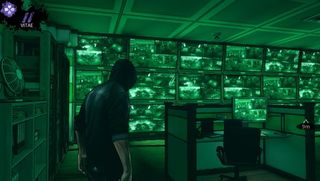
"Dark is tiresome trial-and-error stealth action that offers occasional glimpses of what could've been an interesting game."
Helping matters is the fact that Dark is a stealth game to the bone. Eric doesn't have any guns or weapons, so if you're spotted and come under fire, your only real option is to scurry away and hope that the guards lose sight of you. The game also offers substantial experience bonuses for executing silent kills or clearing areas without setting off alarms, a hook that can at least double the play time for a campaign that will otherwise only run you about four or five hours. It gets all the more interesting when later levels expand in scope, and enemies begin using more advanced equipment to track you and limit your movement. It's difficult to imagine finishing some of the later missions without Eric's vampiric abilities, which means that they feel like a core mechanic rather than a gimmick, and that's important.
Unfortunately, the most prominent power is one that could have used some work: a short-range teleportation trick called "shadow leaping,” which is simple enough in concept but rather cumbersome to use effectively. Given Eric's restricted mobility, shadow leaping--the act of pointing to an on-screen location and instantaneously transporting yourself there--is essential to moving efficiently through levels. But it's both imprecise (you frequently won't be able to aim around corners) and frustratingly limited. Determining which railings and shallow ledges Eric can or can't climb onto is essentially a coin toss, and it's especially infuriating when you find an opportunity to reposition yourself to get a clean jump on an enemy and Dark isn't cooperating.
The skill tree could afford to be a bit more balanced, as well. Having to noisily drink your victims' blood to hold the advantage makes things a bit tricky in spots, but each power usage costs the same amount of energy. So while all of your vampiric abilities are fun to use in their own right, as the difficulty rises, you begin tossing aside all but the most practical of applications. What's the point of temporarily dulling a guard's senses when you can just silently break his spine from across the room and vaporize his corpse for the same expense?
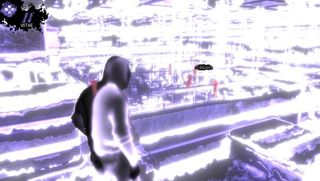
"Even worse are Dark's numerous technical issues."
Even worse are Dark's numerous technical issues. Occasional mechanical quirks, like Eric refusing to take cover behind certain walls or sliding around a bit following shadow leaps, are tolerable. Lousy AI isn't. Guards will frequently notice things that they shouldn't or, conversely, remain oblivious to activities clearly unraveling in their cones of vision. In a game that so heavily encourages perfectionism, unreliable AI behavior is absolute poison, and watching your best-laid plans come undone for reasons out of your control--because a soldier was unnaturally alert, or because your shadow leap wouldn't take you where you needed to go, or whatever--is exasperating.
So while it's always nice to see an attempt to breathe new life into stealth action games, Dark retains and even amplifies many of the frustrating trappings that make the genre so off-putting for some. It's too buggy, imprecise, and narratively unengaging to be of much interest even to those in the market for this sort of thing.
This review was conducted using the PC version of the game.
More info
| Genre | Action |
| Description | DARK is a stealth action game with RPG elements where players take the form of a vampire out to discover the secrets of the mysterious global GeoForge Corporation. Players can use their stealth and lethal combat abilities to destroy their enemies while silently moving through a stylized futuristic landscape. |
| Platform | "PC","Xbox 360" |
| US censor rating | "Mature","Mature" |
| UK censor rating | "","" |
| Release date | 1 January 1970 (US), 1 January 1970 (UK) |



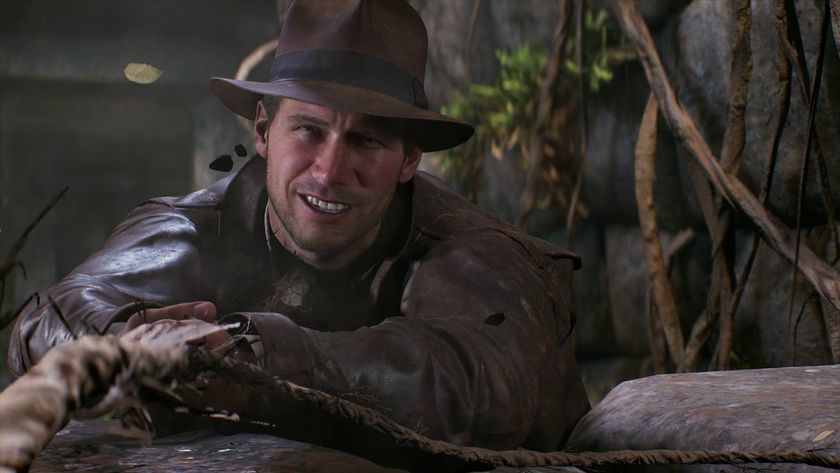

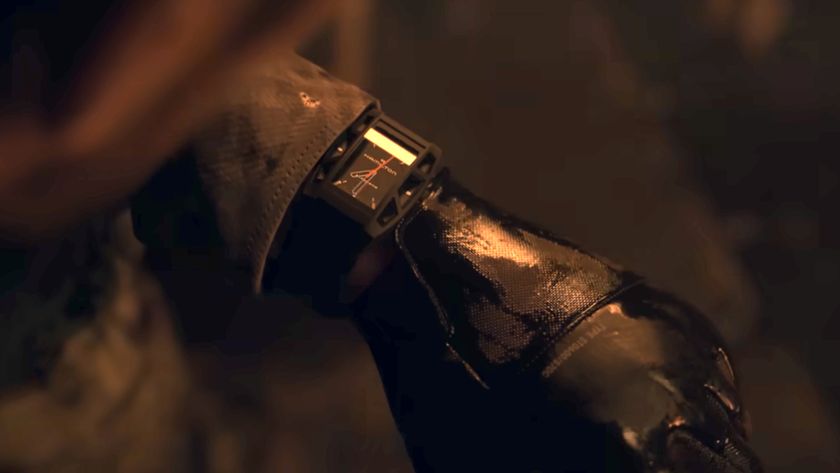




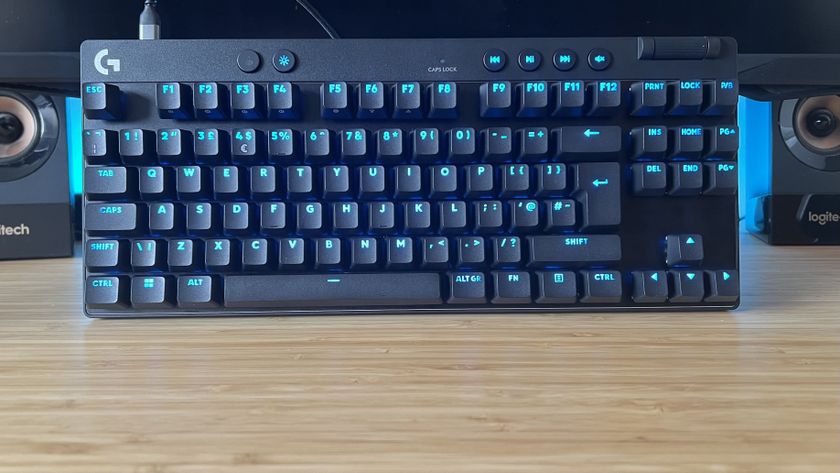


How to complete The Sims 4 Esteemed Entrepreneur aspiration in Businesses and Hobbies

Andor season 2 showrunner Tony Gilroy breaks silence on the weird release schedule: "It's a Disney decision"

5 years after starting development, Neil Druckmann says Naughty Dog's new game Intergalactic: The Heretic Prophet is "still evolving and changing as we're making it"
